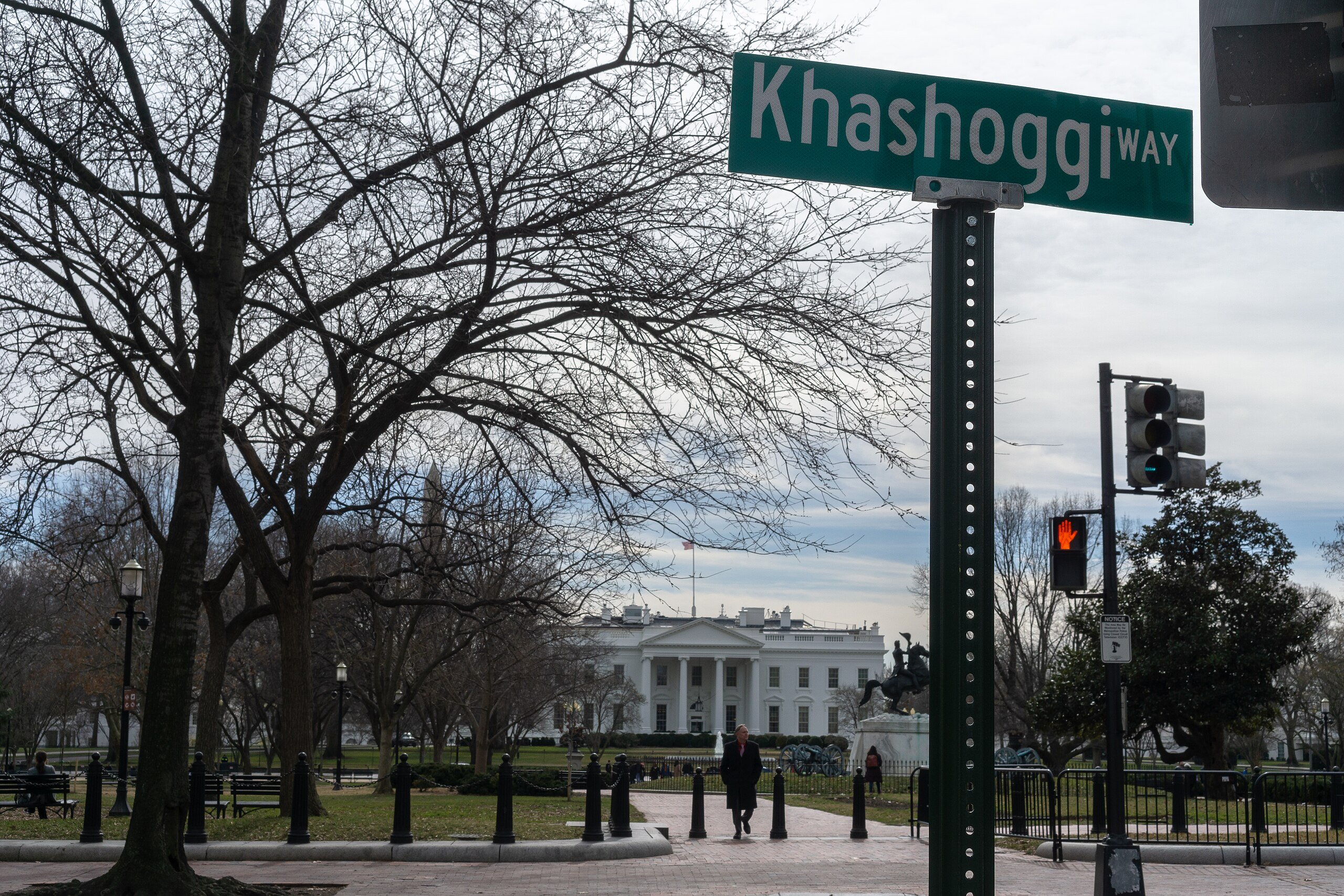


































































Photograph Source: Jami430 – CC BY-SA 4.0
President Donald Trump on Tuesday angrily dismissed a question about the 2018 murder of Jamal Khashoggi, claiming the Washington Post columnist, a Saudi dissident, was “extremely controversial” and insisting the issue was only raised during his meeting with Saudi Crown Prince Mohammed bin Salman to embarrass his visitor.
“A lot of people didn’t like that gentleman [“Kashoggi],” that you’re talking about,” the president explained. “Whether you like him or didn’t like him, things happen.” He added that the crown prince “knew nothing about it.”—again implying that US intelligence agencies, which blamed the prince for the murder, don’t know what they are talking about.
During the joint appearance, Trump called Mohammed “one of the most respected people in the world” and said that they talk on the phone at all hours. Trump also upbraided a reporter from ABC News–libeled as “fake news” by the president—for asking Mohammed about Khashoggi. Trump called her question “horrible, insubordinate and just a terrible question.” He added that the network’s “license should be taken away.” So much for the free speech Trumpists claim to enforce at American universities, where the White House forbids criticism of Israeli “genocide.”
The Saudi prince and US president agreed to sign a mutual defense deal. The president pledged to sell the kingdom American F-35 fighter jets, brushing aside Israeli concerns that such a deal would compromise Israel’s military edge in the Middle East. The two sides made progress on negotiations over exporting Nvidia chips to power Saudi Arabia’s deep investments in artificial intelligence, despite concerns from some U.S. officials that such a move could lead to the spread of American know-how and benefit China.
The president is not burdened by worries about human life. Between July 2020 and January 2021, the Trump administration resumed federal executions after a 17-year hiatus, putting 13 death row inmates to death in the final months of his first term. This unprecedented flurry of executions made Trump the “most prolific executioner in over a century” and broke with precedent by continuing executions during a presidential transition period
In January 2020 Trump authorized a drone strike that killed Iranian Major General Qasem Soleimani and several others near Baghdad International Airport. The UN special rapporteur on extrajudicial executions considered the assassination a potential violation of international law.
The Trump administration has killed many dozens in military strikes on boats in the Caribbean Sea and the eastern Pacific suspected of transporting illegal drugs. Some lawmakers and international law experts call these actions “sanctioned murder” or extrajudicial killings, arguing they blur the line between law enforcement and an act of war.
Trump and some of his associates have been charged with and convicted of various federal crimes, but none for murder.
The administration’s war on immigrants has killed many in body or spirit, breaking up families and sending targets to countries where they do not know even the language, A Human Rights Watch report cited cases of more than 138 Salvadorans who were killed after being deported to dangerous conditions in their home country. Even Russians and Afghan dissidents have been sent back to their dictatorial homelands. Trump has never condemned Russia’s president for killing thousands of Ukrainians and his own people in a war over “controversial” issues.
The administration has shown clemency to many individuals convicted of violent crimes such as the January 6, 2021, attack on Congress.
The bottom line seems to be that if something benefits the president, anything goes. Trump and his family have multiple business interests in the Middle East and other “controversial” places such as Serbia. They expect that whatever they do, no matter how controversial, will go unpunished.
The post “Things Happen:” Is Murder OK If the Victim Was Controversial? appeared first on CounterPunch.org.
This post was originally published on CounterPunch.org.